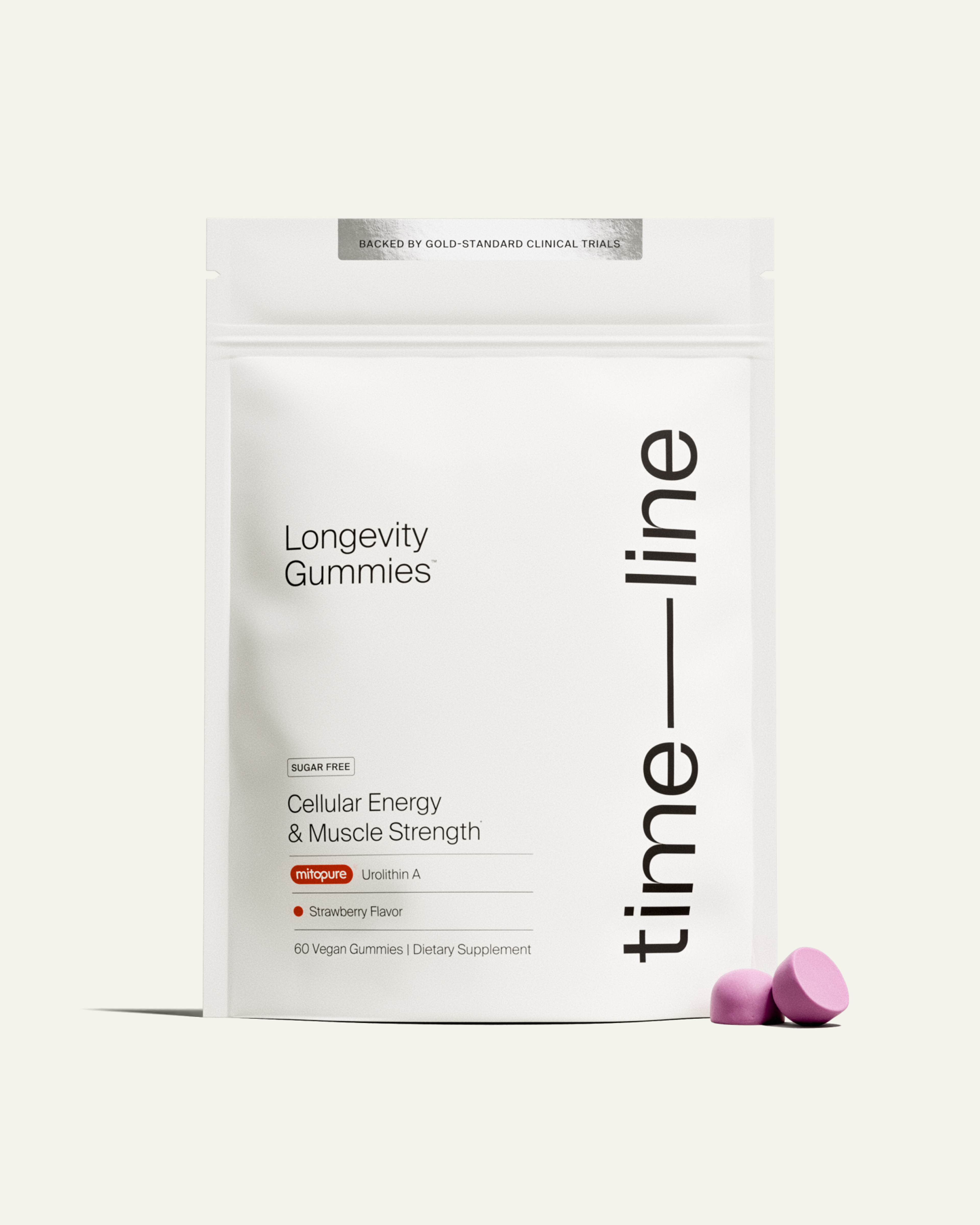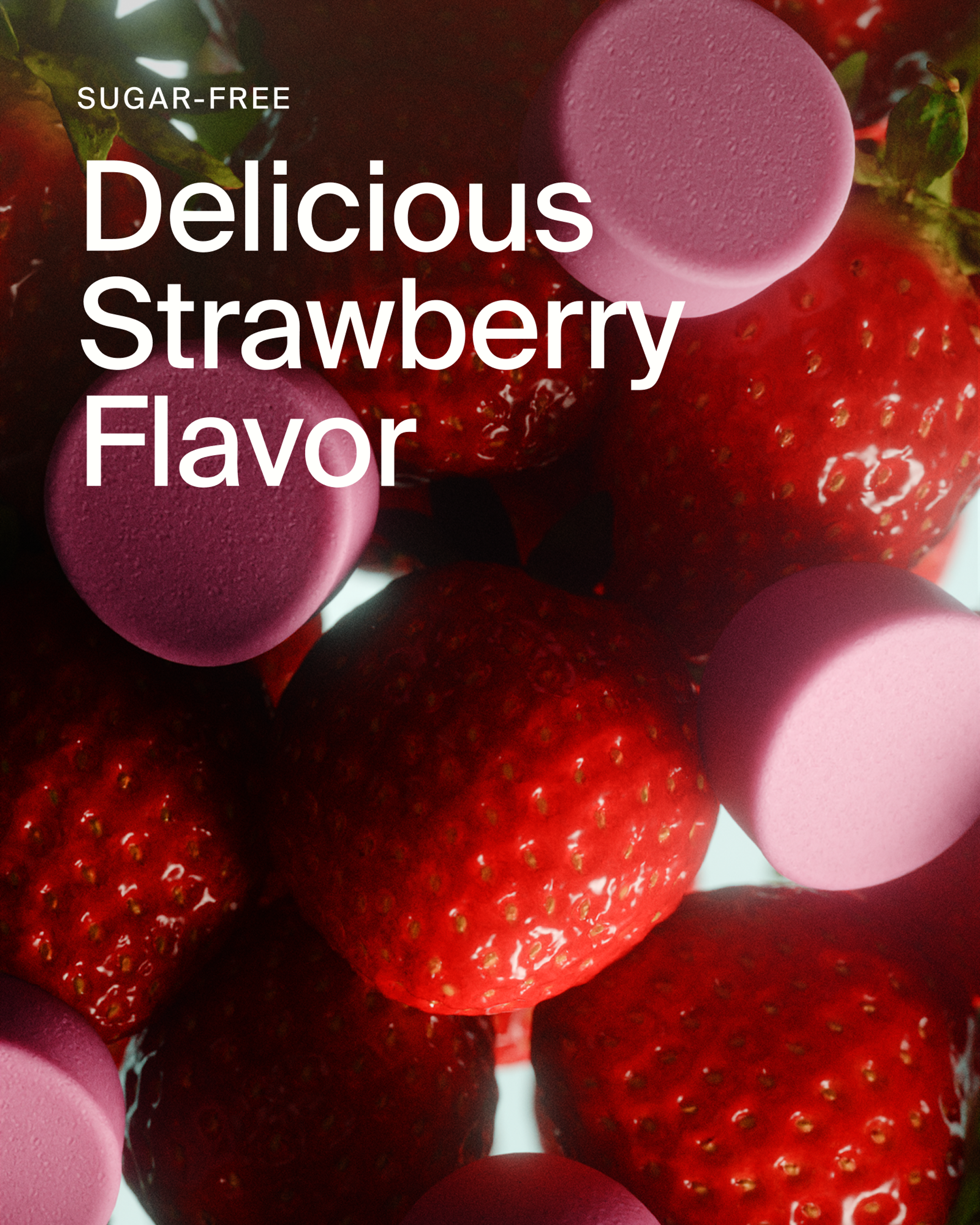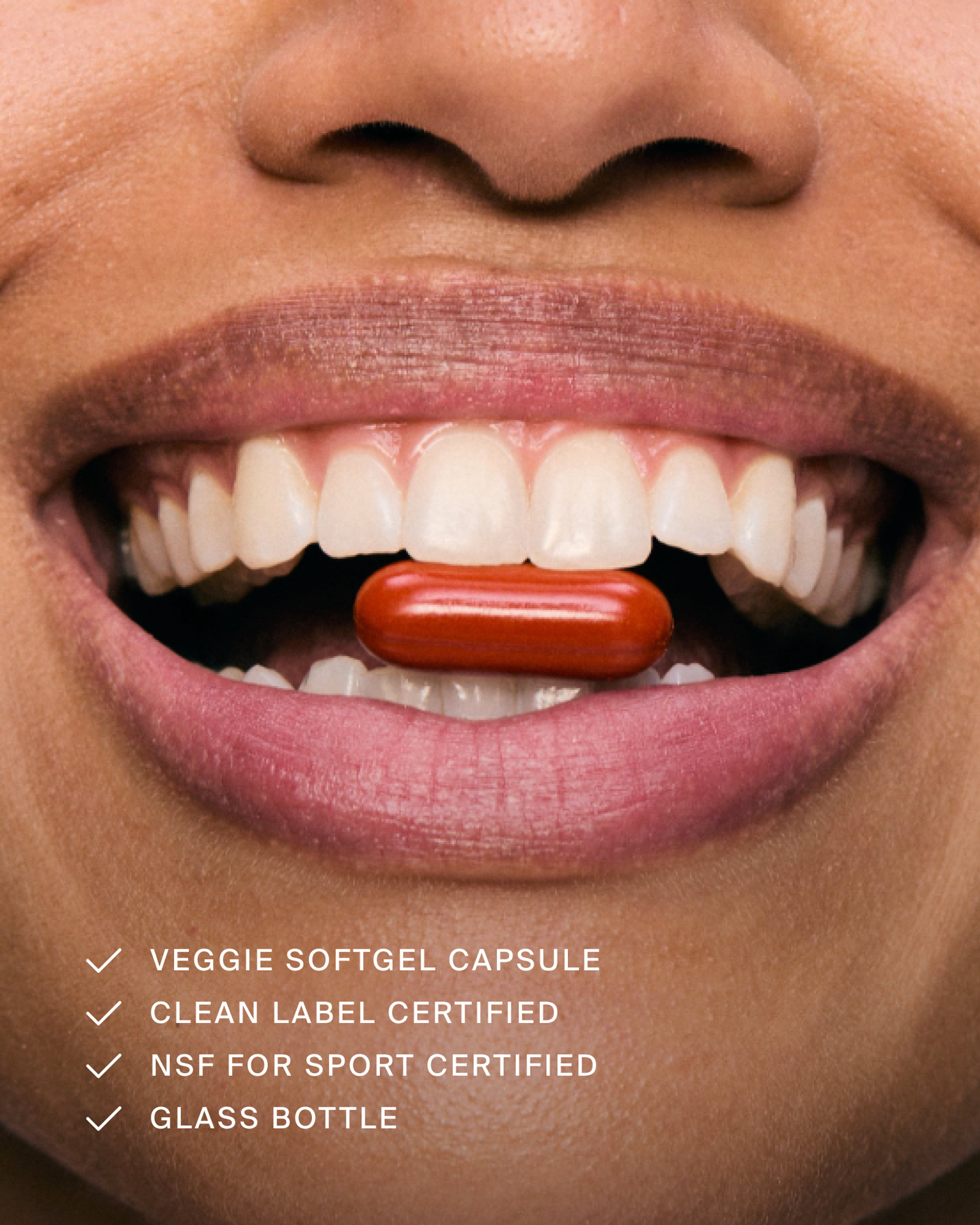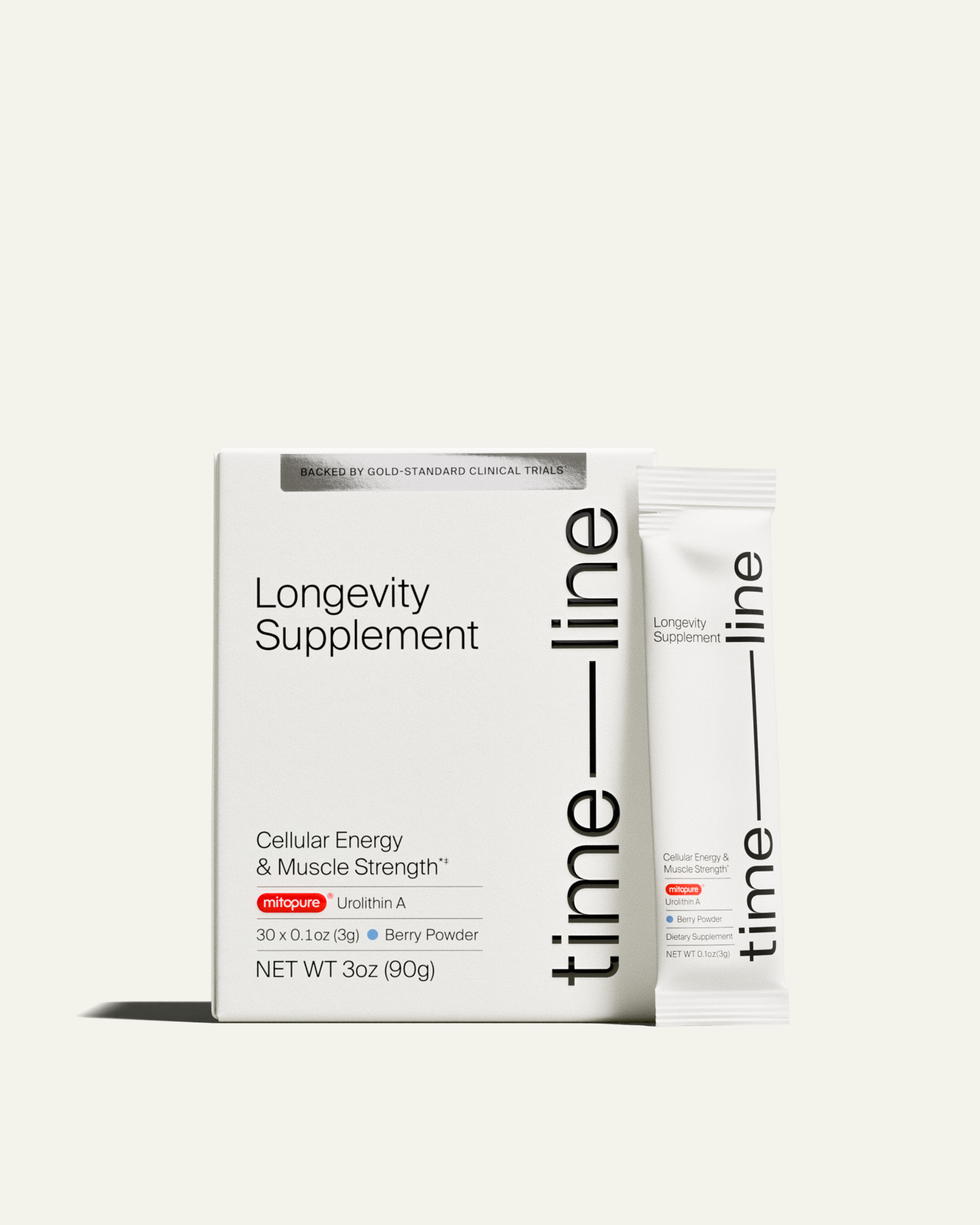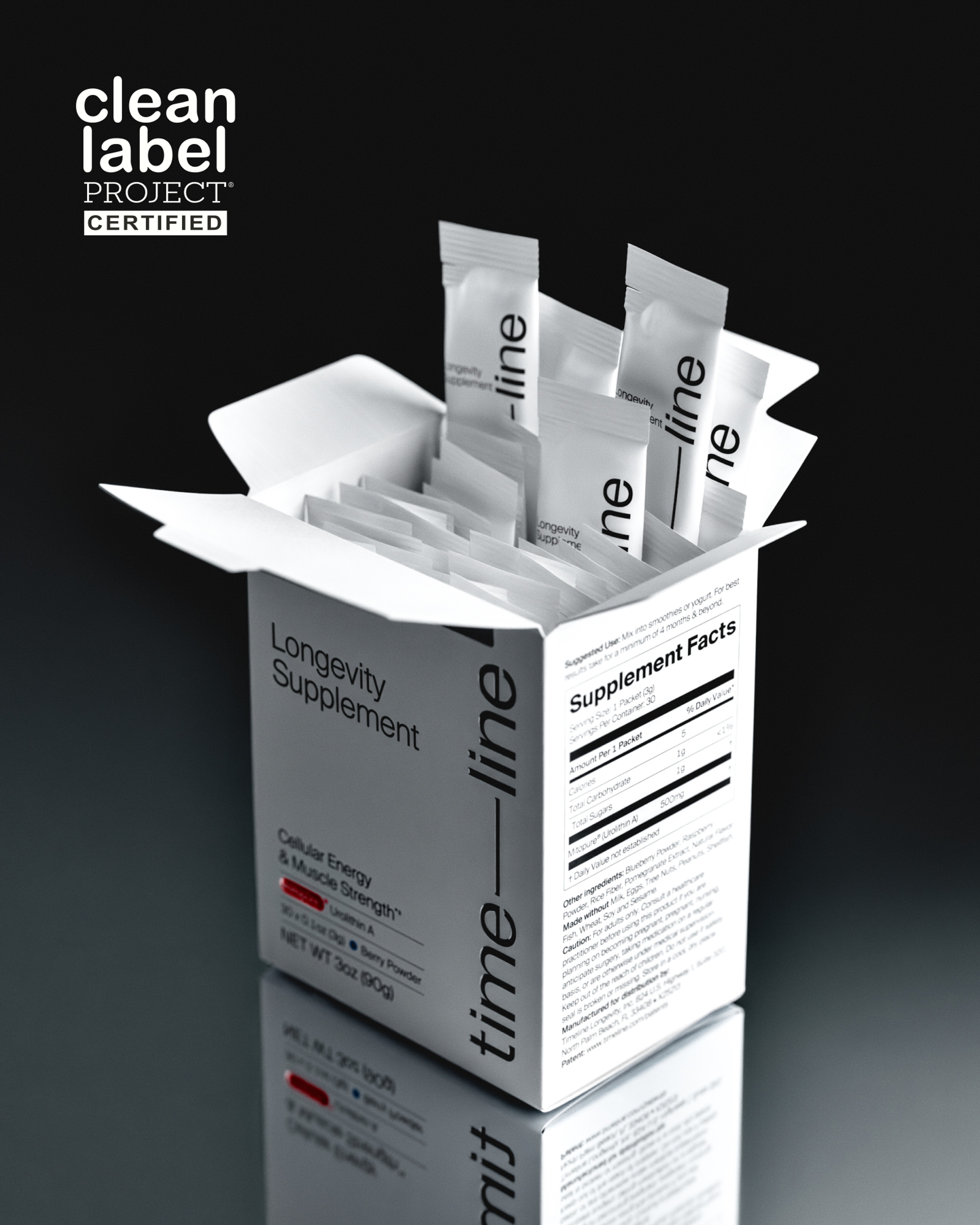The 6 Best Vitamins for Energy After 65
Getting the benefits of vitamins can be challenging, especially for seniors. Learn the best vitamins for energy and how to get in enough.
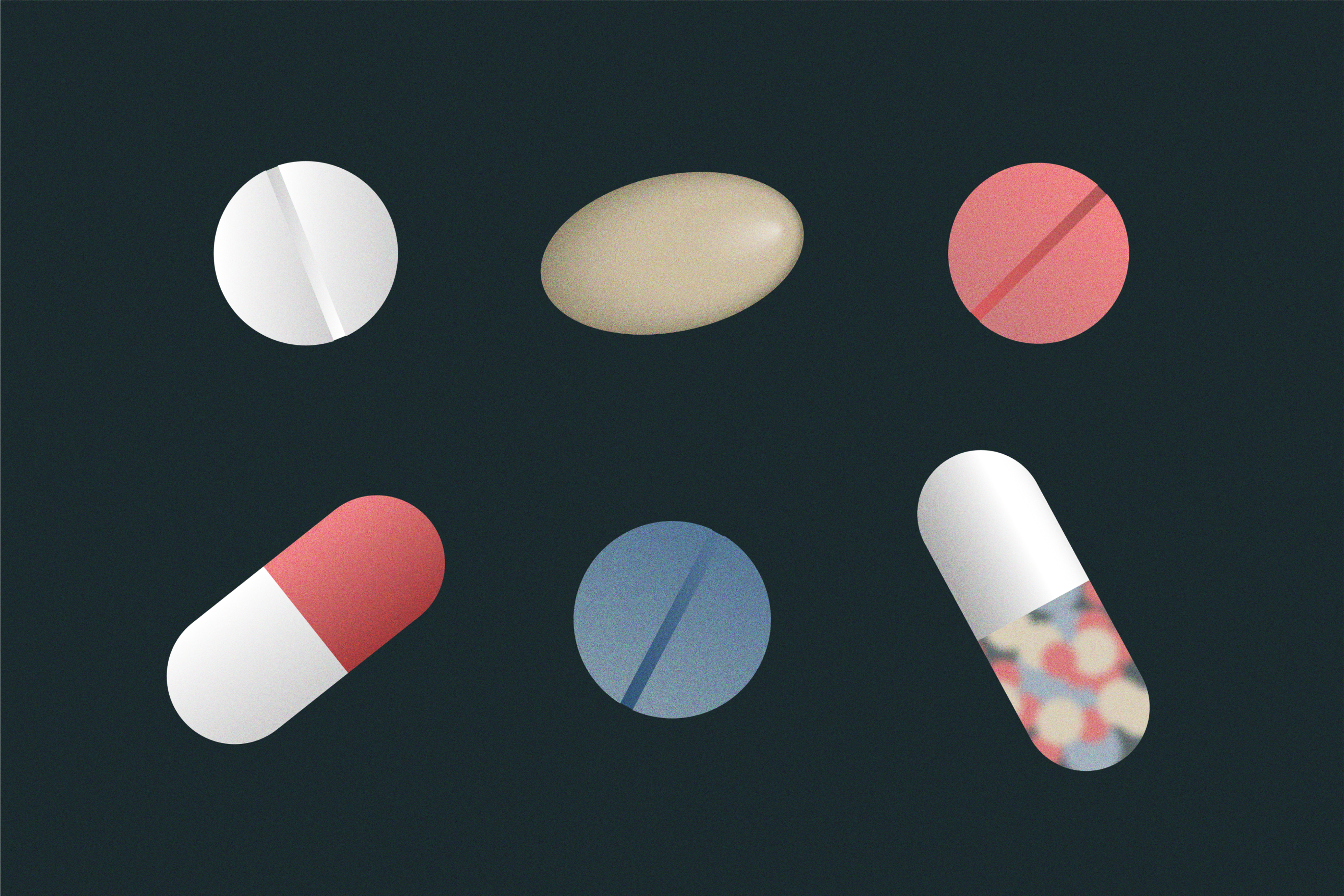
What to know
As we age, factors like reduced nutrient absorption and medical conditions can lead to deficiencies that drain energy levels.
Vitamins like B12, D, and minerals such as iron and magnesium play essential roles in maintaining energy, but their absorption decreases with age, requiring dietary adjustments or bioactive supplements.
A diet rich in animal products can help older adults maintain energy, but those following plant-based diets may need to monitor for deficiencies, particularly in B12, iron, and zinc.
Mitochondrial health, supported by nutrients like CoQ10 and Urolithin A, is key to sustaining cellular energy and combating age-related fatigue.
Combining energy-boosting vitamins with longevity supplements like Urolithin A offers a modern approach to improving vitality and addressing the root causes of aging fatigue.
This article has been recently updated since its original publication.
Are you feeling more tired than you used to, even though your eating habits haven't changed? If you’re 65 or older, it might be more than just a busy lifestyle or inconsistent diet. Age-related changes in gut health, mitochondrial dysfunction, or an underlying medical condition can significantly impact your body’s ability to absorb nutrients and generate energy efficiently.
Fortunately, lackluster energy does not have to be your fate. Focusing on the right vitamins and supplements can support your body’s natural energy production. Read on to discover the best energy-boosting vitamins for seniors, how to get them, and new, science-backed ways to restore energy at the cellular level.
Top 6 vitamins that will give you energy

Vitamin B12 is one of the key vitamins to increase energy over 65. It plays a vital role in energy production by breaking down the food you eat and transforming it into cellular energy. This process doesn’t occur at random, it does this specifically in the mitochondria where you are able to produce the most energy for use.
Vitamin B12 also supports healthy red blood cell production, facilitating oxygen transport throughout the body for energy production. Without enough vitamin B12, the body can’t produce enough red blood cells; this can even lead to anemia
Those who are 50 and older have a higher risk of vitamin B12 deficiency, as they produce less of the required stomach acids needed to absorb it properly. If you are over 50, you may require more vitamin B12 in your diet or a vitamin B12 supplement to counteract this[1].
Moreover, B12 is only found naturally in animal foods, and thus, vegetarians or vegans are at an increased risk of a deficiency.
The best food sources of vitamin B12 include clams, tuna, sardines, salmon, liver, beef, milk and dairy, eggs, fortified cereals, and nutritional yeasts.

If you’re wondering what is the best energy booster for seniors, iron tops the list. In fact, low iron levels are one of the biggest precipitators of weakness and fatigue. The body needs enough iron to make hemoglobin, the necessary protein in red blood cells that transports oxygen throughout your body.
If your body lacks oxygen, you’ll likely find yourself frequently winded and ready for a nap. Iron deficiency in older adults is more common and may result from decreased intake of iron-rich foods, reduced absorption, or health conditions such as kidney disease that can affect the production of iron.
There are many food sources of iron, but animal sources are preferred to plant sources. This is because the “heme” iron from animal sources is more readily absorbed in the body than the “none-heme” iron from plants.
Dr. Gabrielle Lyon, board-certified physician & trained in geriatric nutritional sciences, recently shared a comparison video where she compared spinach and steak as iron sources. Dr. Lyon states:
To get the same amount of absorbable iron as 100g of red meat, you need to eat 800g of spinach.Dr. Gabrielle Lyon
The best food sources of iron include liver, beef, fish, poultry, beans, leafy greens, and fortified cereals. Vitamin C is a good companion for iron, as it can improve its absorption. Specifically, combining vitamin-C-containing foods like citrus or tomatoes with foods high in iron may increase absorption.

CoQ10 stands for coenzyme Q10, another one of the top vitamins to increase energy in your body’s cells. It is found naturally throughout the body and primarily lives in the mitochondria, that cellular powerhouse.
The amount of CoQ10 present in the body may decline in older age, with certain medical conditions like heart disease, or in those who take cholesterol-lowering drugs like statins. Myopathy, often presenting as muscle weakness or pain, is a known side-effect of statins and a sign of CoQ10 deficiency. Low CoQ10 levels may contribute to fatigue, as your body’s cells are not able to produce energy as efficiently.[2]
CoQ10 is found directly in a few food sources, such as fish, meat, and nuts.
However, while CoQ10 is in foods, it is not typically present in adequate amounts to provide enough. Because of this, taking a CoQ10 supplement may be a more effective way to improve your energy. It’s best to take CoQ10 with food as it needs fat to be absorbed.

Vitamin D is another one of the best energy-boosting vitamins and is also considered a longevity-supporting nutrient. Over one-third of adults are Vitamin D deficient in the United States, but seniors especially may be at risk due to dietary factors and reduced time outside. Additionally, research finds that people of color have much higher rates of Vitamin D deficiency, averaging 82.1% in blacks and 69.2% in Hispanics.[3]
A deficiency in vitamin D has been associated with fatigue and weakness in the muscles and bones.[4] This explains why vitamin D may be one of the best vitamins to increase energy.
This may be partly due to the fact that vitamin D helps our bodies absorb calcium. When vitamin D levels are low it may reduce physical strength and increase the risk for fractures.
Vitamin D is found naturally in a few foods, such as salmon, swordfish, tuna, mushrooms, dairy, fortified cereal, and eggs. However, the majority of our vitamin D actually comes from regular sun exposure rather than from the diet. The challenge is that as we get older, the ability to absorb vitamin D slowly declines, and daily sun exposure may not always be a regular occurrence.
If you’re lacking in energy, consider getting your vitamin D levels checked. If you can’t get enough in your diet or from sunlight, there are plenty of vitamin D supplements available to help you meet your needs.

Magnesium is one of the best minerals to boost energy. It works alongside more than 300 different enzyme systems in the body and is directly involved in energy production. This is in part because it helps manage blood sugar and supports healthy blood pressure regulation, which helps to stabilize energy levels.[5]
Magnesium is found in several foods, but those over 50 tend to have lower intakes of these foods, and intestinal absorption of magnesium does decline with age. In addition, renal (kidney) excretion of magnesium increases, resulting in lower levels in the body.
To increase magnesium levels, choose plenty of magnesium-rich foods regularly such as spinach, legumes, nuts, seeds, and whole grains. If needed, a magnesium supplement may be added. Speak to your medical doctor before choosing a magnesium supplement, as some forms are more readily absorbed in the body than others.

Zinc is another mineral needed for optimal energy. It plays an important role in energy metabolism, yet many adults over the age of 60 may be deficient, which may contribute to age-related fatigue.[6]
Even though it is considered a “trace” mineral only needed in small amounts, its presence is necessary for DNA production, proper cell growth and repair, and a strong immune system. All of these body functions are required to feel energized throughout your day.
Zinc is primarily found in animal products like oysters, red meat, and poultry. It is found in lesser amounts in plant-based foods such as beans, chickpeas, and nuts. If you’re a vegetarian or are not regularly eating these foods, it’s important to get your zinc levels checked.
Science unlocks a novel cellular energy booster
While vitamins can certainly boost energy levels naturally, the scientific community has uncovered a novel nutrient with additional energy-boosting properties - Urolithin A (UA).
The body's vast majority of energy – 90% of our cellular energy[7] – is produced by the mitochondria. As we age, our mitochondrial function declines, triggering less than desired energy levels.
Mitochondria play such a critical role in maintaining healthy cellular function that the body has evolved a process to defend them called mitophagy. In mitophagy, damaged or dysfunctional mitochondria are identified and recycled to make way for new, healthy mitochondria.
What’s important to know about Urolithin A is that it directly supports our mitochondrial health by triggering mitophagy, enabling your body to rebuild its energy generators.
Urolithin A directly supports our mitochondrial health by triggering mitophagy, enabling your body to rebuild its energy generators.
Urolithin A is a postbiotic nutrient made by our gut microbes. Foods like pomegranates provide the precursors required to produce it, but unfortunately, 2 out of 3 people lack the gut bacteria to successfully convert the precursors into Urolithin A. [8]This makes getting the therapeutic dose of UA from diet a challenge.
Unlocking energy, muscle, and endurance with Mitopure®
Mitopure®, a clinically validated form of Urolithin A, is now available as a supplement you can add to your diet, unlocking this energy source for those who need it.
Mitopure is not only clinically proven to enhance cellular energy, but it also carries exercise-like effects. Supplementation with Mitopure increased muscle strength by up to 12% after 16 weeks and increased muscle endurance by up to 17% after 8 weeks without more exercise![9]
Wipe the slate clean for your cells, with longevity-focused supplementation.
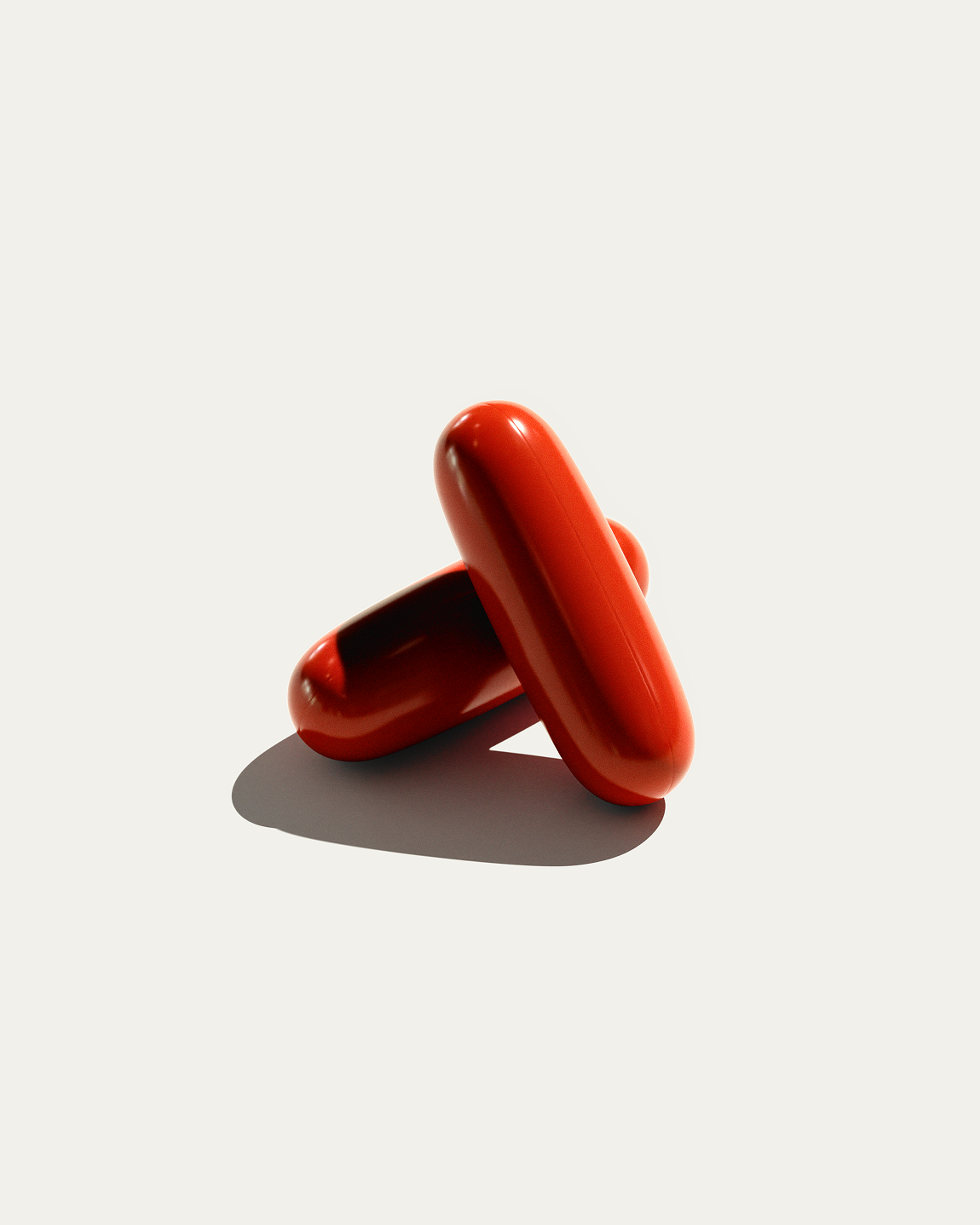
Mitopure Softgels
4.5 · 3758 reviews
The simplest form of Mitopure
Key Takeaways
Optimal energy is produced through a combination of the best vitamins to give you energy, minerals to boost energy, and a proper diet to fuel energy. Diet, while often the preferred solution, is proving to be more complex than one might assume as we better understand the interplay between our individual gut microbiome and the foods we consume. This makes supplementation an important consideration for all, but particularly critical for those 55 and older.
While some energy boosting vitamins are familiar household names, science is constantly moving forward and exciting new nutrients are emerging. As the science supporting these new nutrients grows, these compounds should be considered, in consultation with your medical practitioner.
Mitochondria are key players in maintaining our energy levels, particularly as we age. Novel interventions, like Urolithin A, hold promise because they have been shown to improve mitochondrial health and thus increase cellular energy at the source.
Authors

Written by
Dietitian-Nutritionist, and Health Content Writer

Reviewed by
Director Science Communications
References
- ↑
Stover PJ. Vitamin B12 and older adults. Curr Opin Clin Nutr Metab Care. 2010;13(1):24-27. doi:10.1097/MCO.0b013e328333d157
- ↑
Mehrabani S, Askari G, Miraghajani M, Tavakoly R, Arab A. Effect of coenzyme Q10 supplementation on fatigue: A systematic review of interventional studies. Complement Ther Med. 2019 Apr;43:181-187. doi: 10.1016/j.ctim.2019.01.022. Epub 2019 Jan 23. PMID: 30935528.
- ↑
Parva NR, Tadepalli S, Singh P, Qian A, Joshi R, Kandala H, Nookala VK, Cheriyath P. Prevalence of Vitamin D Deficiency and Associated Risk Factors in the US Population (2011-2012). Cureus. 2018 Jun 5;10(6):e2741. doi: 10.7759/cureus.2741. PMID: 30087817; PMCID: PMC6075634.
- ↑
Naeem Z. Vitamin d deficiency- an ignored epidemic. Int J Health Sci (Qassim). 2010;4(1):V-VI.
- ↑
Han, H., Fang, X., Wei, X. et al. Dose-response relationship between dietary magnesium intake, serum magnesium concentration and risk of hypertension: a systematic review and meta-analysis of prospective cohort studies. Nutr J 16, 26 (2017).
- ↑
Afzali A, Goli S, Moravveji A, Bagheri H, Mirhosseini S, Ebrahimi H. The effect of zinc supplementation on fatigue among elderly community dwellers: A parallel clinical trial. Health Sci Rep. 2021 May 19;4(2):e301. doi: 10.1002/hsr2.301. PMID: 34027128; PMCID: PMC8133867.
- ↑
Pizzorno J. Mitochondria-Fundamental to Life and Health. Integr Med (Encinitas). 2014;13(2):8-15.
- ↑
Singh, A., D’Amico, D., Andreux, P.A. et al. Direct supplementation with Urolithin A overcomes limitations of dietary exposure and gut microbiome variability in healthy adults to achieve consistent levels across the population. Eur J Clin Nutr 76, 297–308 (2022). https://doi.org/10.1038/s41430-021-00950-1
- ↑
Singh A, D'Amico D, Andreux PA, Fouassier AM, Blanco-Bose W, Evans M, Aebischer P, Auwerx J, Rinsch C. Urolithin A improves muscle strength, exercise performance, and biomarkers of mitochondrial health in a randomized trial in middle-aged adults. Cell Rep Med. 2022 May 17;3(5):100633. doi: 10.1016/j.xcrm.2022.100633. PMID: 35584623; PMCID: PMC9133463.
Liu S, D’Amico D, Shankland E, et al. Effect of Urolithin A Supplementation on Muscle Endurance and Mitochondrial Health in Older Adults: A Randomized Clinical Trial. JAMA Netw Open. 2022;5(1):e2144279. doi:10.1001/jamanetworkopen.2021.44279
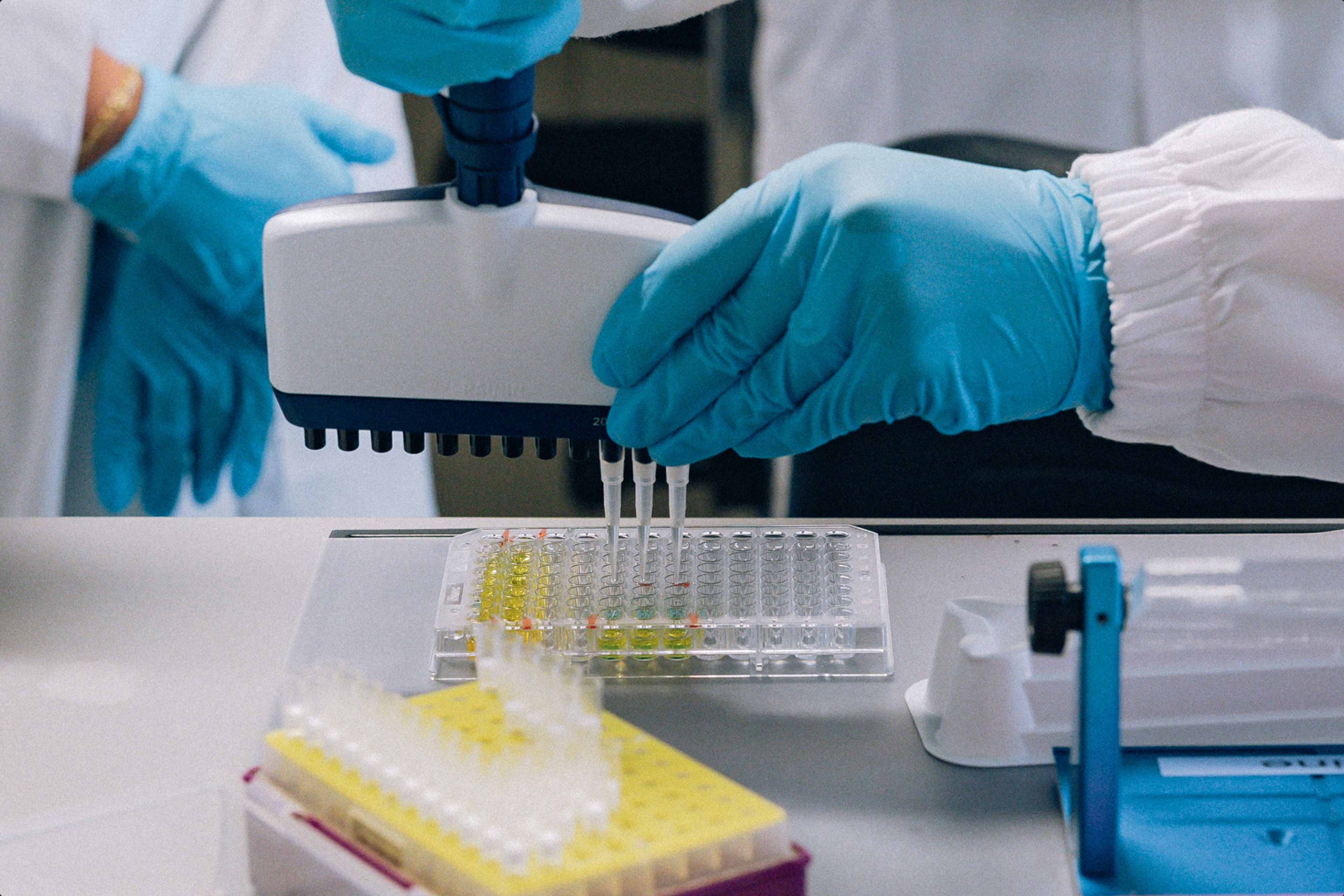
·
Nutrition·
Studies·
